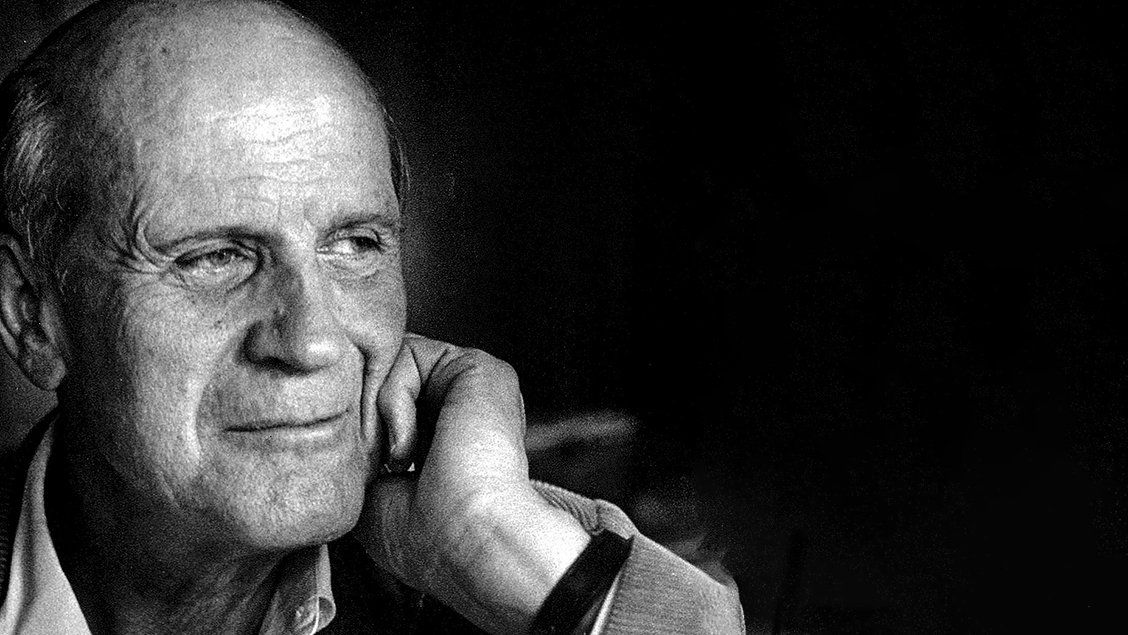Gail Kubik

Gail Thompson Kubik was born in South Coffeyville, Oklahoma, September 5, 1914, the son of Henry Howard Kubik (1877-1972), a lumber merchant from Wisconsin, and Evelyn O. Thompson (1888-1960), a concert singer from Texas who studied under the Austrian-American contralto Ernestine Schumann-Heink (1861-1936). A child prodigy and the youngest person to earn a full scholarship to the Eastman School of Music in Rochester, N.Y., Kubik graduated B.M. in 1934. He studied for his masters degree with Leo Sowerby at the American Conservatory of Music in Chicago (1936) and was the youngest student admitted to Harvard University’s doctoral program in music (1937–38), studying violin with Scott Willits and composition with Walter Piston. He also worked with Nadia Boulanger (who became a close friend), and in 1937 was the youngest composer fellow of the Macdowell arts colony in Peterborough, New Hampshire. Kubik held numerous music teaching posts from the age of nineteen, lecturing at Monmouth College, Illinois; Dakota Wesleyan in Mitchell, South Dakota; and Finch Junior College (formerly Finch School) in New York.
He left the faculty of Teachers College, Columbia University after two years of professor of music theory to become staff composer and music program adviser for NBC (1940–42). Joining the U.S. Army Air Force, at age twenty-eight he was made Director of Music for the film bureau of the Office of War Information, and then composer-conductor for the U.S. Army Air Force Motion Picture Unit (1943–6). His score to THE WORLD AT WAR won a citation from the National Association for American Composers and Conductors. Kubik earned the first of his two Guggenheim fellowships in composition in 1944. A second Guggenheim fellowship followed in 1965. Kubik wrote three symphonies (1949, 1955, 1956), two violin concertos (he himself was soloist at the premiere of the first violin concerto in Chicago in 1938; the second violin concerto won the Jascha Heifitz Award), chamber and choral music, and a folk opera titled Mirror for the Sky (first performance May 23, 1939, Eugene, Oregon) based on the life of the naturalist John James Audubon (1785-1851). He won the Pulitzer Prize in 1952 for his Symphony Concertante (composed 1951, revised 1953). Scripps College music professor Dr. William Chris Lengefeld describes Kubic’s style of composition as “neo-romantic” and “notably American” in the sense of the earlier works of Aaron Copland. An inventory of Kubic’s principal concert compositions will be found on the John Simon Guggenheim Memorial Foundation website.
Notable films he scored include: the war documentary The Memphis Belle: A STORY OF A FLYING FORTRESS (1943), Two Gals and a Guy (1951), William Wyler’s The Desperate Hours (1955) starring Humphrey Bogart, and the Oscar winning animated short Gerald McBoing-Boing (Columbia, 1950) about a small boy who speaks through sound effects rather than spoken words. The cartoon score was instrumental in his receiving the American Prix de Rome in 1950. From about 1960 on, Kubik was a lecturer under the auspices of UNESCO, composer-in-residence at Kansas State University (1969), Gettysburg College (1970), and, finally, Scripps College in Claremont, California (1970–80). In 1980 Kubic filed and lost a law suit against Scripps College challenging the college’s mandatory requirement which forced him to retire age 65. Kubik died in Claremont at the age of 69 from a rare and deadly parasitic disease (kala-azar) which he contracted in Africa. (He taught overseas in far flung places such as Morocco and Casablanca.) Gail Kubik’s obituary in the New York Times states he was at work on a piano concerto at the time of his death. His younger brother Henry H. Kubik Jr. (1917-2013) also studied and taught music for a time, touring and playing cello in the ‘Kubik Ensemble’ during the Great Depression.
Biographical profile compiled by N. William Snedden from open digital sources including:
Pulitzer and Oscar winner dies,
Santa Cruz Sentinel, 25 July 1984
Gail T. Kubik Is Dead At 69,
New York Times, 25 July 1984
Howard Pollack,
Harvard Composers: Walter Piston and His Students from Elliot Carter to Frederic Rzewski,
The Scarecrow Press, Inc., 1992
Alfred W. Cochran,
The Functional Music of Gail Kubik: Catalyst for the Concert Hall,
Indiana Theory Review, Vol. 19 (Spring/Fall 1998), Indiana University Press
Bridget Falconer-Salkeld,
The MacDowell Colony: A Musical History of America’s Premier Artists’ Community,
The Scarecrow Press, Inc., 2005
Links:
Tracklist:
1. Bachata: Concert Rhumba, for Orchestra
2. Variations on a 13th Century Troubadur Song, for Orchestra
3. Erie Canal, for Orchestra
4. Men and Ships, Orchestra score for a Documentary Film
5. Memphis Belle, for Narrator and Orchestra - I
6. Memphis Belle, for Narrator and Orchestra - II



